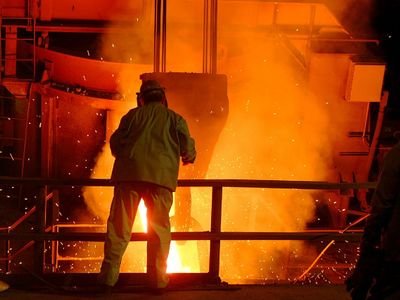Materialframställning och behandlingsprocesser omfattande råmaterialberedning,
metallframställning,
värme- och mekanisk behandling av metallprodukter.
Grundläggande kunskap om fysikalisk kemiska processer inom metallurgin omfattande tillämpning av termodynamiska och kinetiska processer, ternära fasdiagram, mass- och värmebalanser för beräkning av metallurgiska processer.
MH2039 Processteknik 6,0 hp

Den här kursen ger en översikt av vanliga metallurgiska processer genom vilka metaller framställs av malmer och mineraler. Det är en stor del av Sveriges ekonomi och därför är det viktig att förstå industrins kontext, utmanningar och grundläggande beräkningar. Kursen omfattar alla dessa ämnen. Kursen handlar inte om gruvdrift eller tillverkningsprocesser.
Ni som deltar i kursen kommer att lära er hur metallurgiska processer designas på ett termodynamiskt sätt. Ni kommer även att utföra i detalj ett gruppprojekt för att undersöka framställningsprocessen av en metall sedan presentera era resultat vid kursens slut.
Information per kursomgång
Kursomgångar saknas för aktuella eller kommande terminer.
Kursplan som PDF
Notera: all information från kursplanen visas i tillgängligt format på denna sida.
Kursplan MH2039 (HT 2019–)Innehåll och lärandemål
Kursinnehåll
Lärandemål
Efter godkänd kurs ska studenten kunna:
- Beskriva och analysera en produktionskedja för framställning av metaller från metall/malm råvara till slutlig produkt.
- Beskriva, analysera och jämföra högtemperaturprocesser i metallframställning, för både flytande och fast fas.
- Identifiera relevant information för en produktionskedja utifrån tillgängliga databaser och vetenskaplig litteratur för att jämföra och utvärdera dessa.
- Tillämpa värme- och massbalanser i metallurgiska processer.
- Analysera och diskutera grundläggande begrepp inom teori om organisation och genus.
- Redogöra för och diskutera vad begreppet hållbar utveckling inom metallindustrin innebär samt hur metallindustrin är en del av den cirkulära ekonomin.
Kurslitteratur och förberedelser
Särskild behörighet
Grundläggande termodynamik och värme-, massbalanser i metallurgiska processer
Rekommenderade förkunskaper
Kunskaper inom processmetallurgins grundläggande principer motsvarande det som undervisas i kursen MH1029 Hållbar processteknik
Kurslitteratur
Examination och slutförande
Betygsskala
Examination
- PRO2 - Projekt, 3,0 hp, betygsskala: A, B, C, D, E, FX, F
- TEN1 - Skriftlig tentamen, 2,0 hp, betygsskala: A, B, C, D, E, FX, F
- ÖVN1 - Övningsuppgift, 1,0 hp, betygsskala: P, F
Examinator beslutar, baserat på rekommendation från KTH:s handläggare av stöd till studenter med funktionsnedsättning, om eventuell anpassad examination för studenter med dokumenterad, varaktig funktionsnedsättning.
Examinator får medge annan examinationsform vid omexamination av enstaka studenter.
När kurs inte längre ges har student möjlighet att examineras under ytterligare två läsår.
Examinator
Etiskt förhållningssätt
- Vid grupparbete har alla i gruppen ansvar för gruppens arbete.
- Vid examination ska varje student ärligt redovisa hjälp som erhållits och källor som använts.
- Vid muntlig examination ska varje student kunna redogöra för hela uppgiften och hela lösningen.